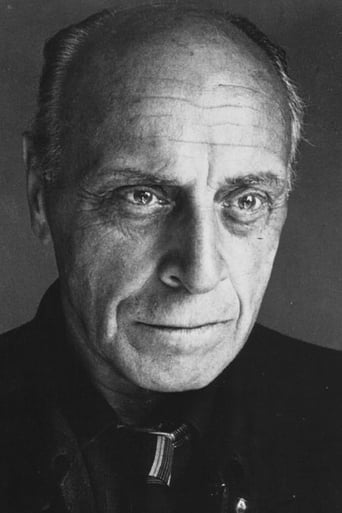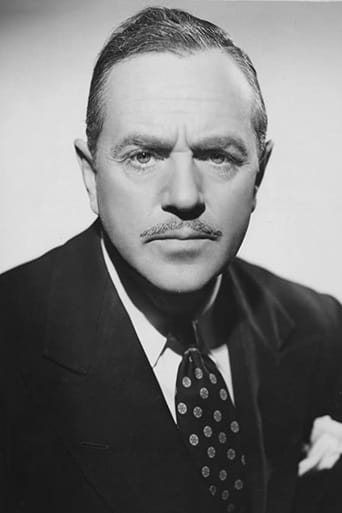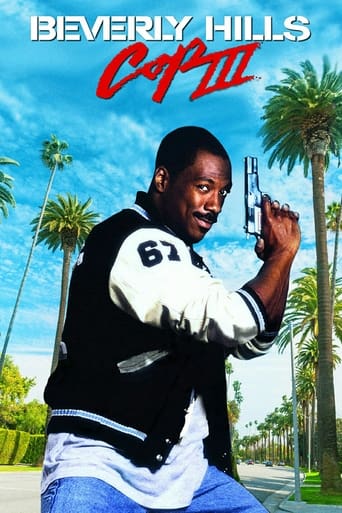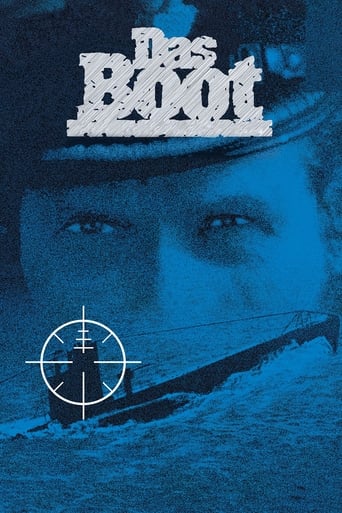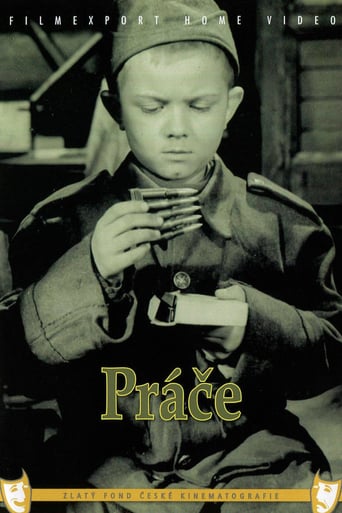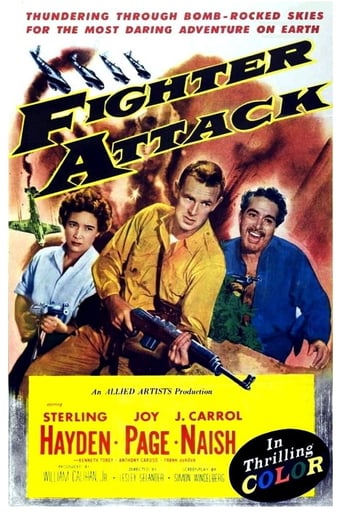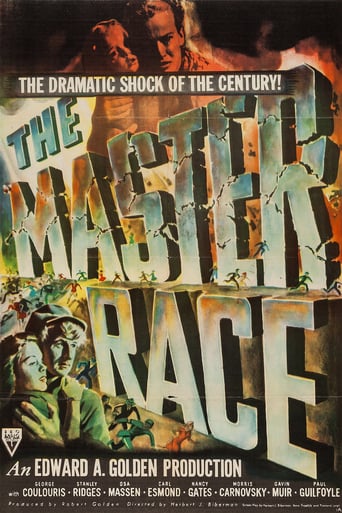
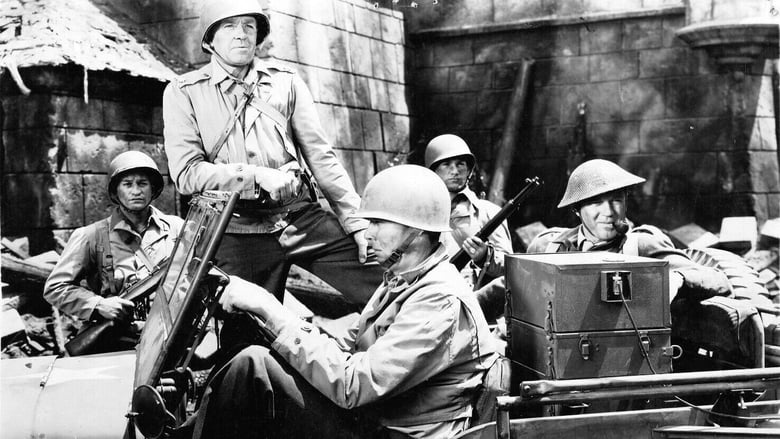
The Master Race (1944)
When allied troops liberate a small battle-scarred Belgium town in 1944 the American and British commanders do all they can to help the war-weary people back on their feet. There are mental and physical wounds to heal, fields to plough, the church to rebuild. But a top Nazi, knowing the War is lost, has infiltrated the town and is fostering dissent and disunity.
Watch Trailer
Cast
Similar titles
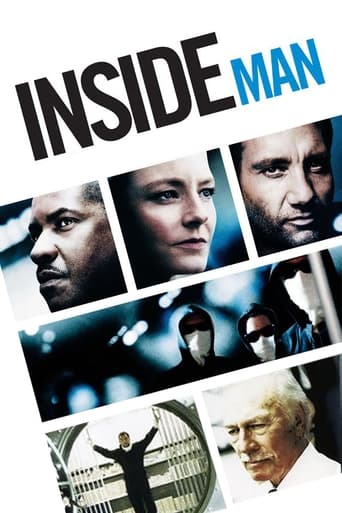
Reviews
Absolutely brilliant
This story has more twists and turns than a second-rate soap opera.
This is one of the best movies I’ve seen in a very long time. You have to go and see this on the big screen.
By the time the dramatic fireworks start popping off, each one feels earned.
The story is about a group of Nazis who try to blend in the with locals in the waning days of the war. One in particular, Colonel Von Beck (George Coulouris) is the star of the film...and his methods seem bent on sowing discontent and chaos. Can the Allies figure out who this man is before it's too late?According to IMDB, this film was rushed through production in order to capitalize on the recent Allied invasion of France. And, while I watched, the film did have a hurried feel to it. It wasn't due to the acting or music or cinematography but the story itself...a story that seemed like it needed a re-write as some of it was a bit rough. Some examples of how heavy-handed and shallow some of the scenes were would be the incredibly over-idealized Russian doctor as well as the church scene. In addition the film uses one of the worst cliches in film history...a person telling the evil person that they are going to turn them in to the authorities! You just KNOW what's gonna happen to this woman!By the way, despite me not enjoying the story, George Coulouris was wonderful as the Nazi agent...and he was always excellent in playing awful characters.
Herbert Biberman (1900-1971) is the writer and director of this 1944 film. Biberman was a member of the left wing theatre group in New York City and was married to Gale Sondergaard. Both Biberman and Sondergaard were victims of the HUAC "red scare" – Biberman served time in prison and both were blacklisted.This was his third film as director, fifth as a writer.Lloyd Bridges (1913-1998) has a minor role in the film. Bridges too was briefly blacklisted but turned around and would be a staunch right wing presence.(Doc) Robert Golden produced the film. He also produced "Hitler's Children" (1943) which was directed by Edward Dmytryk, another director imprisoned during the HUAC trials. "Hitler's Children" was the most successful film for RKO, even surpassing King Kong, and led to this film being made.From the film there aren't many obvious communist themes, but there is a sympathetic Russian soldier and there is a lot of emphasis on people working together. The film is ardently anti-Nazi.George Coulouris (1903-1989) gives the best performance of his career. Osa Massen (1914-2006) is excellent.
This film unfortunately is a corny and inferior one, which is a terrible shame, because the subject deserved an excellent treatment. The subject is the fate of Nazism at the end of World War II. From 1944, Nazism began a process of planned 'metastasis', a word which I take from oncology to compare its spread to that of cancer cells when the central tumor is abandoned as the main base of the disease and the cancerous cells spread throughout the body. This is shown in this prescient early film, at the beginning of the story, where officers of the Wehrmacht are given sealed instructions and false identities to spread themselves throughout the world and work in secret for the restitution of Nazi ideals in the future. George Coulouris plays the wicked Colonel von Beck who presides over this, and is the villain of the film. It was not the Wehrmacht officers who did this in reality, but the SS. And the process was set up and presided over by Heinrich Himmler and Martin Bormann. Some conspiracy theorists suggest that Bormann got away and that his 'skull' which was found was not really his. We do not need to concern ourselves with that issue here. When the Allies got to Berlin they found the Berlin Treasury empty. All the gold of conquered Europe had been stored there. It was never found. Its value today would be trillions of dollars. The ingots had apparently been hidden in poisonous chemical tanks of the chemical company I. G. Farben (the main foreign 'front' for the Gestapo throughout the 1930s and the War), since gold cannot be damaged by any chemicals, and only the unstable mixture of two separate acids known as aqua regia can dissolve it. The gold was shipped out to safe havens like Sweden, Chile, and Argentina, over a period of time. Nobody opens poisonous chemical tanks to inspect what might be at the bottom. Apparently, ten percent of the gold was meant to be permanently stored as a 'backup' and still is stored. The rest has over the decades been used by the metastasized Nazis to buy international corporations and banks and attempt to achieve economic dominance and power, with a collection of bribed 'tame politicians' to assist them along the way. Many of their collaborators do not even know that they are working for metastasized Nazis, because all the collaborators care about is the money. The new Nazi Internationalists threw the Hitler cult overboard, just as shown in this film. The film was written and directed by Herbert J. Biberman, an inferior writer and director in Hollywood who had been a member of the Communist-leaning theatrical group in New York known as 'the Group'. He was later blacklisted during the McCarthy Era. It appears that he was a member of the Communist Party. Certainly, the corny creation of a hero of the Soviets as a character in this film is the kind of nonsense one expects of political hacks when they get too carried away making movies, and cannot resist inserting some propaganda into a film which then makes the story partially absurd. I mention all of this because it appears that Biberman was given some accurate information about what the SS were up to in their programme of 'Planned Metastasis', and I believe it must have come to him from the Soviet agents by way of Party contacts. How else could he possibly have concocted this story so early on, as even today people are still figuring out what really happened? Therefore, Biberman was performing a genuine service by informing the public of the process at this early date. But he did so with such lack of skill and talent, and with such adolescent propagandistic fervour, that the film has made no lasting impact, and its message was lost. The unlikely spot of Kolar, Belgium, is chosen as the supposed location of all the action, if you can call it action. The film contains a fine performance by the Danish actress Osa Massen as a German woman who has been raped by German soldiers and borne a child who has no name because of the shame. Lloyd Bridges plays her husband who returns and struggles to come to terms with the situation, but his performance is mediocre, as there is not much in the script and even less in the direction to give him much to do other than to wrinkle his brow and look earnest from time to time. This film could and should have been an impressive one, but it is not. Someone should try this theme again, and make it work this time.
Based on the title and the first few minutes, this looks like it will be a kind of "Boys from Brazil" story about Neo-Nazis out to reclaim the world, but it's actually a rather run-of-the-mill WWII propaganda melodrama of betrayal and loyalty. George Coulouris plays von Beck, a Nazi general who leads a group of "inner circle" Nazis on the eve of Germany's surrender (the movie was released after D-Day but before the actual surrender). Glad to leave the weakened Hitler behind, the group goes underground, intending to get new identities and foment dissent among the liberated peoples of the former Third Reich. In Belgium, Coulouris pretends to be his brother, moves in with his sister-in-law and her daughter (who were seen as collaborators by the villagers), and tries to derail the Allies to return the land to nomality. Paul Guilfoyle (father to the Paul Guilfoyle who currently plays Brass on CSI) is Coulouris' first conquest in his propaganda battle. Lloyd Bridges is a former concentration camp prisoner and Nancy Gates is his girlfriend. The most interesting character is Helena, played by Osa Massen, who was raped by a German soldier and subsequently bore a child (Gigi Perreau in a wordless performance). The two have become semi-outcasts, seen as tainted by Nazi blood. There is some nice use of light and shadow in some scenes but aside from its interesting set-up, nothing very exciting goes on. After the opening, we never see any of the other "inner circle" Nazis and the whole film becomes a story of the villagers struggling to trust each other again. One of the worst lines of dialogue in any WWII movie occurs here when Bridges has to say, at an inspiring moment, "When the Lord made people, he had a great idea!" Massen is the best actor in the picture, even though she is saddled with having to look wide-eyed and sinister for the first half of the film until her secret shame (which we guess early on) finally comes out.
